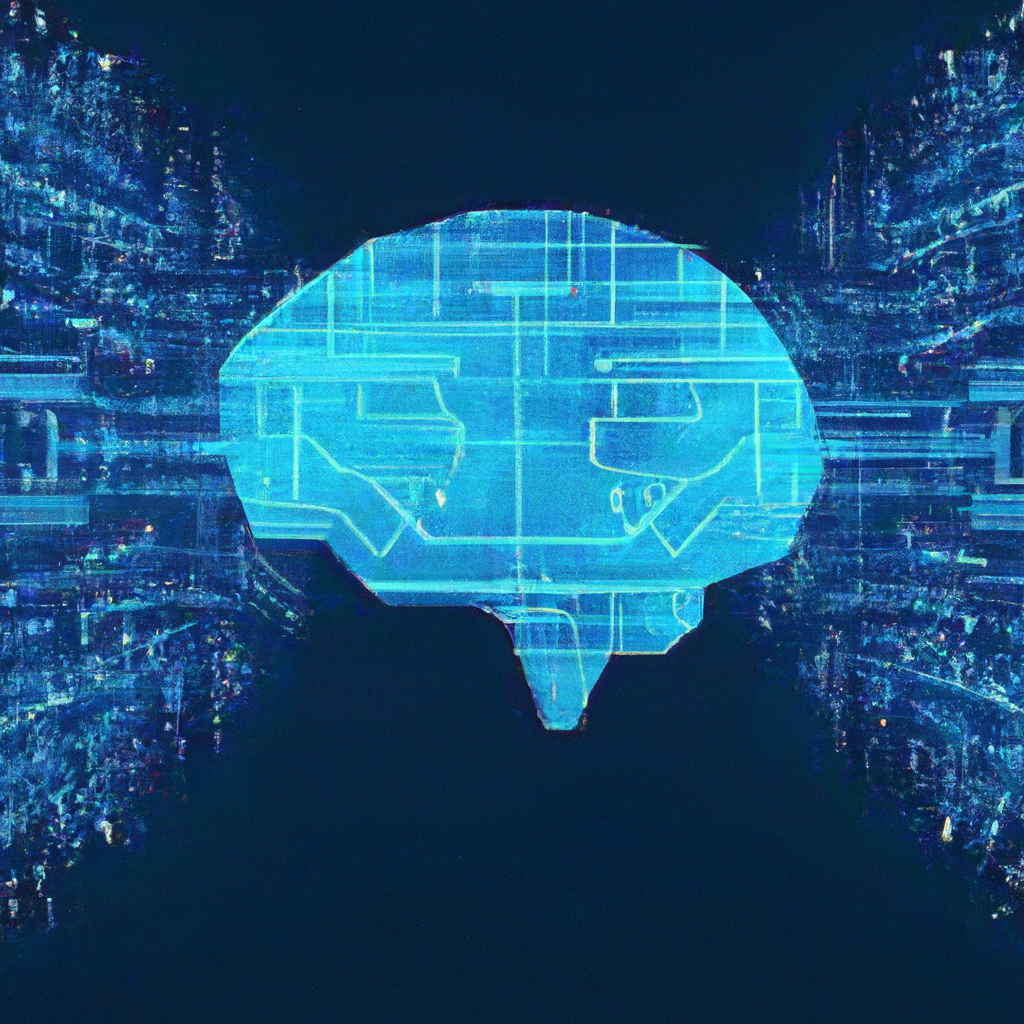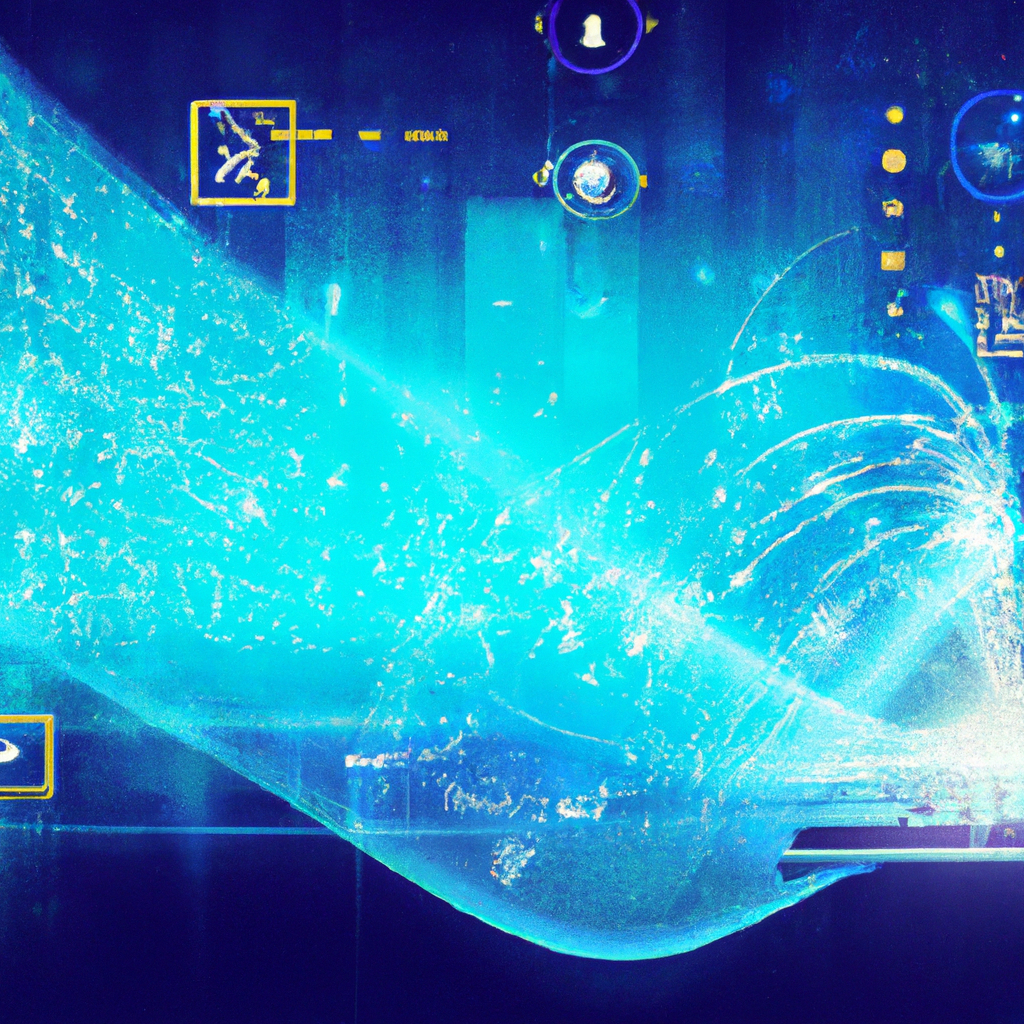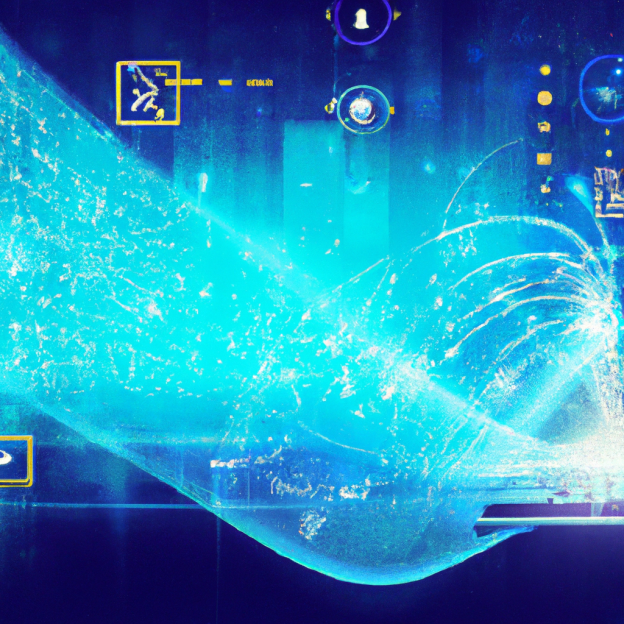Imagine a world where artificial intelligence (AI) controls every aspect of digital marketing. From analyzing data to executing campaigns, AI takes the reins, leaving marketers in awe of its prowess. But will this ever become a reality? As technology continues to advance at a rapid pace, the question arises: Will AI eventually dominate the field of digital marketing, revolutionizing how brands connect with their audiences? Let’s explore the potential implications of this intriguing possibility.

The Role of AI in Digital Marketing
AI, or artificial intelligence, has become an indispensable tool in the world of digital marketing. With its ability to process and analyze large amounts of data quickly and accurately, AI has revolutionized the way marketers target customers, personalize their campaigns, and optimize their advertising efforts. In this article, we will explore the various ways AI is transforming the field of digital marketing and the challenges and limitations that come with it. We will also discuss the different AI-driven technologies that marketers can leverage to enhance their marketing strategies and the evolving role of marketers in this AI-driven landscape. Finally, we will delve into the future trends and possibilities that AI holds for the future of digital marketing.
Automating Marketing Processes
One of the main benefits of AI in digital marketing is its ability to automate various marketing processes. AI-powered tools can streamline repetitive tasks, such as data analysis, lead generation, and campaign management, allowing marketers to focus on more strategic activities. For example, AI can analyze customer data to identify patterns and trends, helping marketers make data-driven decisions about their marketing strategies. By automating these processes, AI frees up marketers’ time and enables them to work more efficiently, ultimately leading to better campaign results.
Improving Customer Targeting
Another significant role of AI in digital marketing is improving customer targeting. AI algorithms can analyze vast amounts of customer data, including demographics, preferences, behaviors, and purchase history, to segment customers into more specific groups. By understanding the unique needs and interests of different customer segments, marketers can tailor their messages and offers to resonate with their target audience. This personalized approach not only improves the customer experience but also increases the effectiveness of marketing campaigns, leading to higher conversion rates and customer satisfaction.
Enhancing Personalization
Personalization has become a crucial aspect of digital marketing, and AI plays a vital role in enhancing this aspect. Through AI-powered recommendation systems, marketers can deliver personalized content, product recommendations, and offers to individual customers based on their past behaviors and preferences. For example, e-commerce platforms often utilize AI algorithms to recommend products to customers based on their browsing and purchase history. By delivering personalized experiences, marketers can build stronger relationships with customers, increase brand loyalty, and drive repeat purchases.
Optimizing Advertising Campaigns
AI has significantly transformed the way marketers optimize their advertising campaigns. With AI-driven technologies, marketers can analyze massive amounts of data in real-time, monitor campaign performance, and make quick adjustments to maximize results. AI algorithms can automatically optimize ad placements, bidding strategies, and targeting parameters to ensure that advertisements reach the right audience at the right time. Additionally, AI can analyze customer responses to advertisements and make recommendations for future campaign improvements. By leveraging AI in advertising, marketers can improve campaign effectiveness, increase ROI, and save time and resources.
Challenges and Limitations of AI in Digital Marketing
While the potential benefits of AI in digital marketing are substantial, there are also challenges and limitations that marketers must be aware of.
Data Privacy and Security Concerns
One significant challenge of using AI in digital marketing is the concern over data privacy and security. Marketers collect vast amounts of data to feed AI algorithms, but this data often includes personal and sensitive information. As AI becomes more prevalent, ensuring the privacy and security of customer data becomes increasingly critical. Marketers must implement robust data protection measures and comply with relevant regulations and consumer expectations to maintain customer trust and confidence.
Lack of Human Creativity and Emotion
Another limitation of AI in digital marketing is its lack of human creativity and emotion. While AI can process and analyze data efficiently, it struggles with tasks that require human creativity, intuition, and emotional understanding. Content creation, storytelling, and building emotional connections with customers are areas where human marketers excel. Although AI can support and enhance these processes, it cannot replicate the level of creativity and emotional intelligence that humans possess. Marketers must strike a balance between leveraging AI for data-driven decision-making and utilizing human creativity to create impactful marketing campaigns.
Ethical Implications and Bias
AI algorithms are only as good as the data they are trained on, and this raises concerns about ethical implications and bias. If the training data is biased, AI algorithms can perpetuate and amplify these biases, leading to unfair discrimination or exclusion. Marketers need to be mindful of the biases in their data sets and take steps to mitigate and address them. Transparency and accountability in AI algorithms are crucial to ensure that marketing campaigns are fair and ethical.
Need for Human Oversight and Intervention
Despite its remarkable capabilities, AI in digital marketing still requires human oversight and intervention. AI algorithms can provide insights and recommendations, but it’s up to human marketers to interpret and implement them effectively. Human judgment and expertise are necessary to make strategic decisions, handle complex situations, and adapt to unforeseen circumstances. Marketers must understand the limitations of AI and continuously collaborate with AI systems to achieve optimal results.

AI-driven Technologies in Digital Marketing
AI-driven technologies have been integrated into various aspects of digital marketing, empowering marketers with new tools and capabilities. Here are some of the key AI-driven technologies that are transforming the digital marketing landscape.
Chatbots and Virtual Assistants
Chatbots and virtual assistants have become increasingly popular in digital marketing for their ability to provide personalized customer support and streamline interactions. AI-powered chatbots can engage in natural language conversations with customers, answering their queries, providing recommendations, and even completing transactions. By automating customer interactions, chatbots enhance the customer experience, improve efficiency, and reduce costs for businesses.
Predictive Analytics
Predictive analytics leverages AI algorithms to forecast future outcomes based on historical data. In digital marketing, predictive analytics can help marketers anticipate customer behavior, identify potential leads, and determine the most effective marketing strategies. By analyzing patterns and trends in customer data, predictive analytics enables marketers to make data-driven decisions, optimize campaigns, and allocate resources effectively.
Natural Language Processing
Natural language processing (NLP) enables machines to understand and interpret human language. In digital marketing, NLP is used to analyze customer feedback, sentiment analysis, and social media monitoring. By understanding and extracting insights from customer conversations, NLP helps marketers gauge customer sentiment, identify emerging trends, and respond to customer needs promptly.
Image and Video Recognition
Image and video recognition technologies are transforming how marketers analyze visual content. AI algorithms can analyze images and videos to detect objects, faces, emotions, and even brand logos. Marketers can utilize this technology for visual social listening, content analysis, and tailored ad targeting. By understanding the visual context, marketers can create more engaging and personalized experiences for their target audience.
The Evolving Role of Marketers
As AI continues to reshape the digital marketing landscape, the role of marketers is also evolving. Here are some of the key changes and skills that marketers need to adapt to thrive in an AI-driven world.
Becoming Data-Driven Analysts
With the vast amount of data available, marketers need to become data-driven analysts. They must be proficient in interpreting data, identifying trends, and extracting actionable insights. By harnessing data analytics tools and techniques, marketers can make informed decisions, optimize their campaigns, and drive better business results.
Harnessing the Power of AI
Marketers need to embrace AI as a powerful ally. Rather than fearing that AI will replace them, marketers should learn to leverage AI to augment their capabilities. By harnessing AI technologies, marketers can automate tedious tasks, gain deeper customer insights, and deliver personalized experiences at scale. Marketers need to continuously update their skill sets and stay informed about the latest AI advancements to remain competitive in the industry.
Building and Maintaining Trust
As AI becomes more prevalent, building and maintaining trust with customers becomes crucial. Marketers must emphasize transparency, privacy, and ethical practices when leveraging AI. Clear communication about how data is collected, used, and protected is essential to build trust with customers. Marketers should also ensure that AI-based marketing efforts are fair, unbiased, and add value to the customer’s experience.
Upskilling and Adaptability
The rapid advancement of AI requires marketers to be adaptable and continuously upskill. They need to stay updated with the latest AI-driven technologies, understand their potential applications in marketing, and develop the skills required to leverage them effectively. Upskilling in areas like data analysis, artificial intelligence, and machine learning allows marketers to adapt to the changing landscape and take advantage of the opportunities AI presents.
Future Trends and Possibilities in AI and Digital Marketing
As AI continues to evolve, new trends and possibilities emerge for digital marketing. Here are some future trends that marketers can expect to see.
Hyper-Personalization through AI
Hyper-personalization takes personalization efforts to the next level by delivering highly customized experiences to individual customers. AI enables marketers to collect and analyze vast amounts of customer data in real-time, allowing them to create personalized content, offers, and recommendations that perfectly match individual preferences and needs.
Voice-Activated Marketing
With the rise of voice-enabled devices like smart speakers and virtual assistants, voice-activated marketing is becoming increasingly relevant. Marketers can leverage AI-powered voice recognition technologies to engage with customers through voice interactions, offer personalized recommendations, and deliver tailored experiences.
AI in Influencer Marketing
Influencer marketing is a popular strategy in digital marketing, and AI can enhance its effectiveness. AI algorithms can analyze influencers’ social media profiles, followers, engagement rates, and audience demographics to identify the most relevant and influential influencers for a particular campaign. By leveraging AI in influencer marketing, marketers can make data-driven decisions and maximize the impact of their influencer collaborations.
Automated Content Generation
AI-powered content generation is an emerging trend that has the potential to revolutionize content marketing. AI algorithms can analyze vast amounts of data and generate high-quality content based on specific guidelines and objectives. While humans will always play a crucial role in content creation, AI can help marketers enhance content creation processes, optimize content generation, and improve productivity.
Conclusion
AI is undoubtedly transforming the field of digital marketing, automating processes, enhancing personalization, and optimizing advertising campaigns. However, it is important to recognize that AI is not a replacement for human marketers. Rather, it is a powerful tool that, when used effectively, can augment a marketer’s capabilities and drive better results. Marketers must adapt to this AI-driven landscape by becoming data-driven analysts, harnessing the power of AI, building and maintaining trust, and continuously upskilling. By understanding the challenges, leveraging AI-driven technologies, and embracing future trends, marketers can stay ahead of the curve and leverage the full potential of AI in digital marketing.
